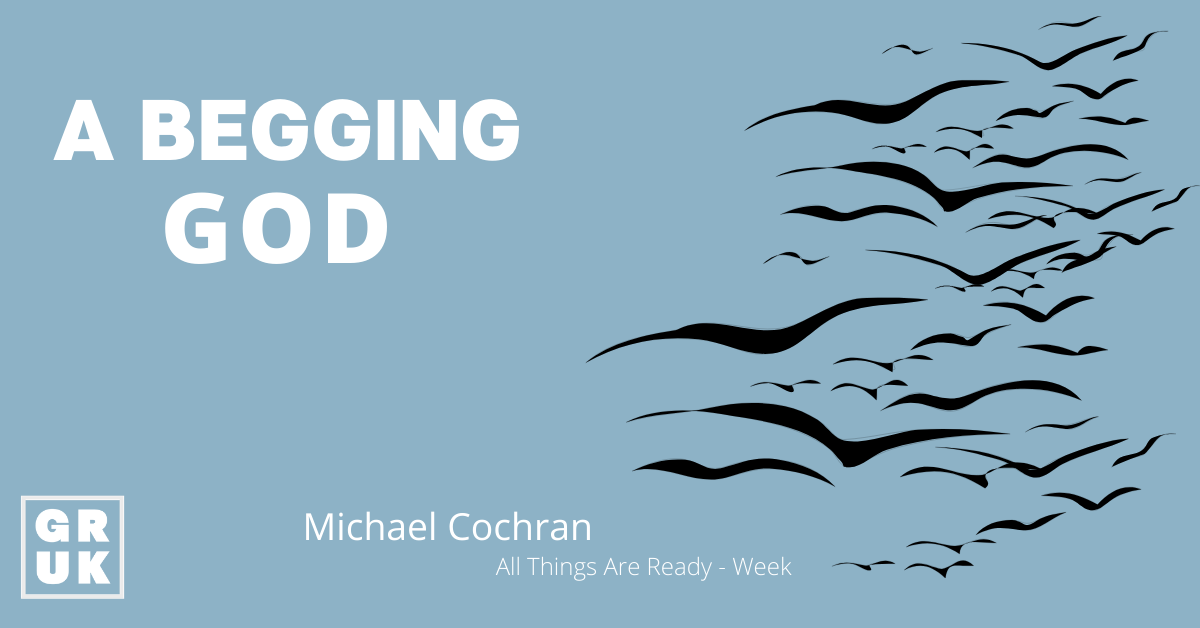Improving your Baptism (Part 1)
The Westminster Larger Catechism, question 167 asks, “How is our baptism to be improved by us?” It’s a good question. Whether you’ve been immersed, or sprinkled, baptised when you were older, or younger, an infant or a believer, it is a question all of us should be asking!
One book I have found particularly helpful for practical sanctification is Thomas Brooks Precious Remedies Against Satan’s Devices (You can get a copy of it in the Puritan Paperback series by Banner of Truth). I would highly recommend it. The church today, at least publicly, appears to desperately need practical sanctification. We need to remember that we are saved to be made holy. As Paul says so wonderfully in Ephesians 2.
But God, rich in mercy…
made us alive with Christ
raised us up with Christ
seated us with Christ … in the heavenly places (my paraphrase of the ESV)
He finishes saying that we now walk in the good works which God has prepared for us. So, how do we walk in these good works? Putting to death the old man of sin (mortification) and walking in the Spirit (vivification).
As a way of an introduction then to Brooks’s book
His first first device he lists of Satan to entice us to sin, is to present the bait but hide the hook. In other words, he presents something pleasing (the sin in question) but hides the hook (the consequences of that sin). I am not a great fisherman. I have only been fishing a couple of times and have never caught anything. I think fishing is more of an excuse to sit in a boat in the calm of nature and have a few drinks (depending on your denomination either soda or beer). But, at least to my thinking, fish do not tend to like metal hooks that kill them. They do however like the bait, whether it is brightly coloured or good tasting food.
Suddenly though, once they bite the bait, they find the hook. If they knew the hook was there, they would not have bitten it. This is how sin works. We are presented with something pleasing to the eye (think Genesis 3) but not with the consequences — expelled from the garden and fellowship with God and fellow human beings now made incredibly difficult, if not now impossible! If Satan had presented the options fairly to Eve she would have said no to that fruit! It was not worth it! Yet we make that same exchange hundreds of times a day.
So Brooks says, (1) the remedies to this are to stay far away from sin, (2) sin will usher in the greatest disaster, (3) sin is bittersweet, (4) and that sin by its nature is deceitful.
Think through with me then, first we flee from sin and temptation — whatever that may be. We can all probably dwell on ways we could distance ourselves from sin-causing situations. Whether that is accountability software on our computer, regularly repentance and confession, seeking help from others, we should not neglect the church and the fellowship of the saints in helping us on this path of holiness.
The second is when those temptations arise, we need to remember that sin brings death. Just as in the Garden, so in the rest of the Bible (see Genesis 4 and onward!). Brooks says this:
Men must not think to dance and dine with the devil, and then to sup with Abraham, Isaac, and Jacob in the kingdom of heaven; to feed upon the poison of asps, and yet the vipers tongue should destroy them. (p. 13)
Thirdly, sin is an awful trade. We exchange communion with God, peace, rest, hope, and eternal life for the loss of divine favour. Jesus Christ died that we might be free (Gal. 5:1), yet we would willingly return back to bondage and slavery! In the moment sin seems to be sweet, but as Brooks notes, it is a bitter-sweetness. There will be consequences to pay. It is as if he is saying, if you must sin, sin knowing what it will cost! Then judge for yourself which is better.
Finally, sin by its nature is deceptive and deceitful. Brooks says:
So a man bewitched with sin had rather lose God, Christ, heaven, and his own soul than part with sin. Oh, therefore, for ever take heed of playing or nibbling at Satan’s golden bait. (p. 15).
I would heartily recommend this book to you. It makes for a great devotional reading and helps to spur us on in practical holiness, something to which we all desperately need.
If you are a professing believer in Jesus Christ, you should have been baptised. That baptism is a uniting us with Jesus Christ in his death, resurrection, and ascension. It is the application of the covenant promises that you now belong to the family of God. It is a washing and cleansing that is found when we put our faith in Jesus Christ. By all means, let us ‘improve on our baptism’ as we walk by faith, growing in Godliness, as that is the goal of salvation — to be like Jesus Christ!
Take heart, Christ has broken the chains of sin in our heart. The Spirit of Holiness dwells with in us. God the Father has prepared for us good works to walk into. By grace, you have been saved!










